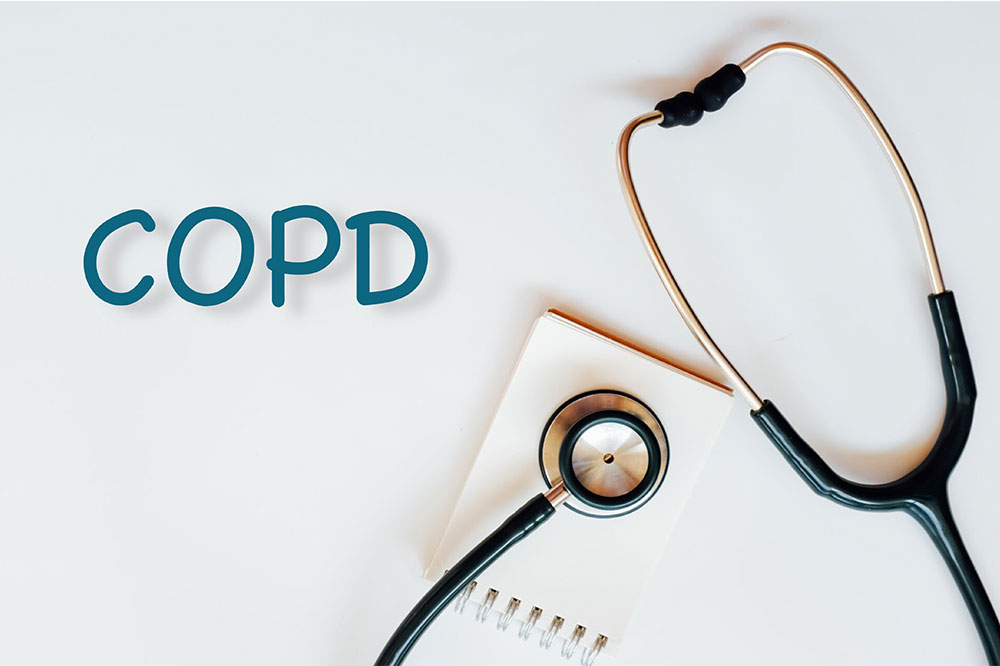
COPD – Symptoms, causes, and management options
COPD, or chronic obstructive pulmonary disease, is an umbrella term for a group of lung diseases that obstruct airflow, leading to breathing issues. Its symptoms can be observed over a long period and damage the lungs over time. Emphysema and chronic bronchitis both develop into COPD. While the condition does not have a permanent cure, it can be managed through treatment. According to a report, about 15 million in the country are diagnosed with COPD.
Symptoms
Initially, one may notice milder or occasional signs, which can worsen and become persistent over time. Some of the common symptoms are:
Wheezing
Tightness in the chest
Shortness of breath during mild exercises
Trouble breathing while performing daily chores
Lack of energy
Swelling in ankles and feet
Respiratory infections
A chronic cough that generates mucus for long periods
Difficulty breathing
Causes and risk factors
Inhalation of toxic fumes can cause COPD, say, exposure to burning coal or heating poorly ventilated houses. Further, long-term exposure to air pollution and dust and fumes in the workplace can cause the condition. The genetic disorder that results in Alpha 1 antitrypsin deficiency is a less common cause of the condition.
Best foods
People with respiratory conditions require more energy to breathe and recover. So, one should maintain optimal body mass and nutrient intake to make it easier to breathe. Here are the best foods to help with COPD management:
Protein-rich food: One should opt for grass-fed meat, pastured chicken, eggs, and fish such as salmon, mackerel, and sardines, which contain high levels of protein to strengthen respiratory muscles.
Fresh fruits and vegetables: Fresh veggies and fruits contain essential nutrients like minerals, vitamins, and fiber. Many studies have shown a positive correlation between fiber intake and better lung function.
Potassium-rich foods: Potassium plays a key role in maintaining lung function, and its deficiency can lead to breathing issues. So, one should have potassium-rich foods like avocados, beetroots, bananas, and oranges.
Prevention
A healthy lifestyle and good eating habits can help lower the risk of COPD. So, one should not have excessive salt as it can make the body retain water and hinder breathing. One should have plenty of fluids and avoid caffeinated beverages to stay hydrated. Further, good eating habits include chewing slowly and having smaller meals at regular intervals. Being too full can make it difficult for the lungs to expand. One should also limit exposure to air pollution from fumes, dust, and chemicals. Additionally, washing hands with soap before preparing or eating food can lower the risk of infections.
Remedies
The treatment focuses on relieving symptoms like breathing issues and coughing. In addition to treatments like oxygen therapy and prescriptions, many traditional methods can help slow down disease progression. Some effective home remedies for COPD are:
Breathing exercises: The exercises strengthen the muscles that aid in breathing.
Supplements: Vitamin D supplements can help reduce inflammation of the air passage. Further, co-enzyme Q10 and creatine can provide energy to the body.
Essential oils: Eucalyptus oil can help clear the mucus from the lungs and open up the airways.
COPD can be managed with a healthy lifestyle and eating habits, along with treatments. One should discuss all treatment options with a doctor to understand the risks and benefits.




